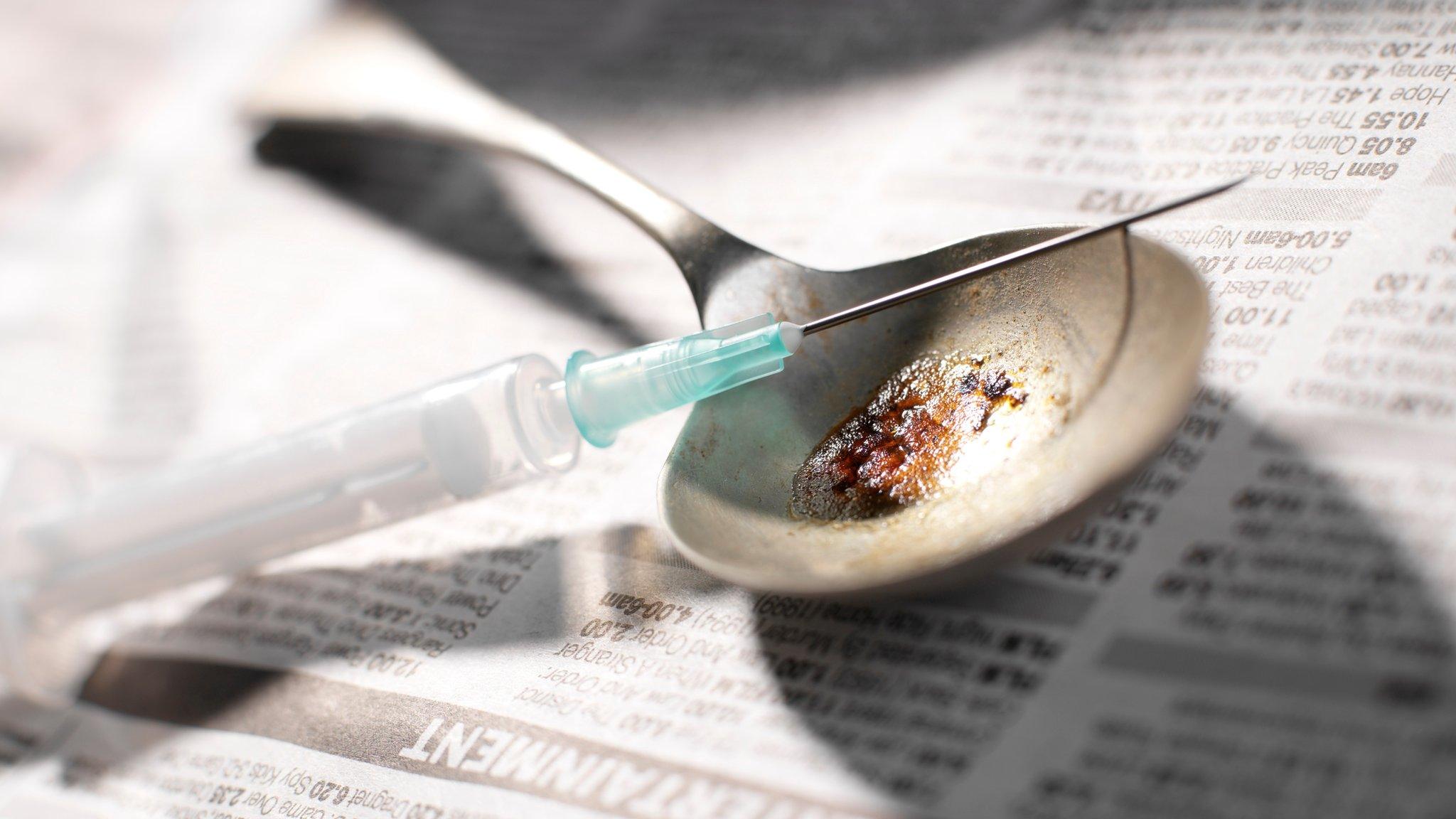Opiate-linked death rate in Wales 50% higher than England
- Published
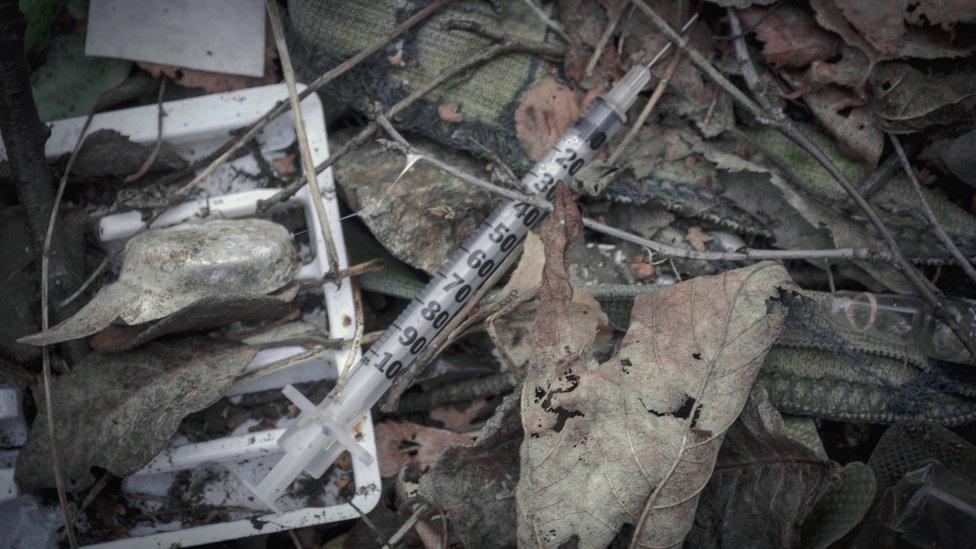
The proportion of deaths in Wales connected to opiates - such as heroin - was 50% higher than England last year, official figures have shown.
The number of deaths where opiates were mentioned on the death certificate per 100,000 population was 5.08 in Wales in 2016, versus 3.38 in England.
Drugs charities said support was available for users but not enough addicts were engaging with services.
The Welsh Government said tackling the issue was a priority.
The figures from the Office for National Statistics (ONS), external also showed the proportion of opiate-linked deaths in Wales rose last year - from 4.5 per 100,000 in 2015, compared to 3.36 per 100,000 in England - with the total number rising from 141 to 158.
Data from the ONS presents a steady growth of opiate-related deaths in Wales.
It is at its highest level since it peaked in 2012 (5.4 deaths per 100,000 population) and at its second-highest level since 1993, when it stood at just 0.76 deaths per 100,000 people (22 deaths).
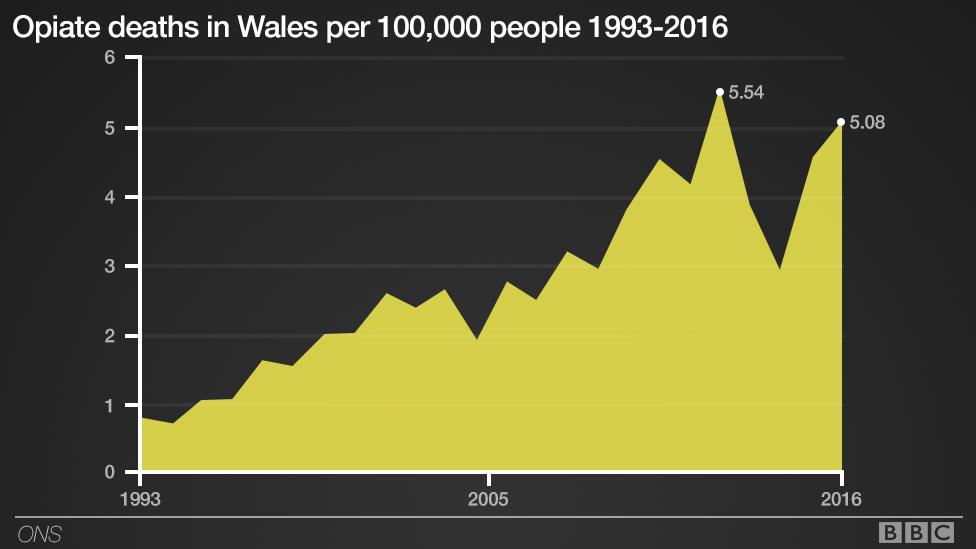
Geraint Davies, who works for Treatment and Education Drug Services (TEDS), external, which offers free services to drug users in the Rhondda Cynon Taff and Merthyr Tydfil areas, said he believed Wales was leading the way with support for heroin users - but feared many people were not taking up the help.
He said the Welsh Government had rolled out the use of Naloxone, which can be given to heroin users and their carers to reverse the effects of an overdose.
"This is a massive driver with regards to reducing deaths and in England, not everywhere is doing this," he said.
"So there is a lot being done here to try to help people. But unfortunately these drug problems do follow patterns of deprivation.
"People turn to drugs generally because of a lack of other opportunities in their environment.
"And the ones who are most at risk are the ones who are not engaging with services - either the agencies are not offering the support they want or they might have children and fear social services might get involved."
Gareth James, a recovering addict, on how heroin can take over your life
Neath Port Talbot had the highest proportion in Wales at 11.3 deaths per 100,000 - with the number of deaths at 16 in 2016.
That was followed by Swansea with 9.8 deaths per 100,000 population (24 deaths) and Ceredigion with 9.4 per 100,000 (seven deaths).
Merthyr Tydfil, which had previously seen a high proportion of opiate deaths, was the only county in Wales with none in 2016.
Gareth Joseph, a recovering heroin addict who now works for Cardiff-based support group Recovery Cymru, external, said more services were needed in remoter parts of Wales.
"If you live in Powys you might have to get on a bus for 30-40 miles to get support. Who is going to do that?" said Mr Joseph.
"You need to bring support closer to the people who need it. The problem is increasing because of social deprivation."
Dr Mohan de Silva, from Kaleidoscope, said some addicts were treating themselves

Dr Mohan de Silva, clinical lead for Newport-based drugs charity Kaleidoscope, external, said there were also fears some heroin batches were being laced with fentanyl - a painkiller which he said was 50 times stronger than heroin.
"We think people are unknowingly taking this and it can be lethal," he said.
"We have come across people who tell us there's more of it is available on the market, we think from China, particularly through the dark web," he said.
"We need to raise awareness among users that this is happening and it is dangerous, but equally you don't want to make it more sought after."
The problem of heroin-related deaths is not new to Wales and a number of ways of dealing with the problem are being explored.
One backed by North Wales Police and Crime Commissioner Arfon Jones is for "fix rooms" for users to inject safely under supervision.
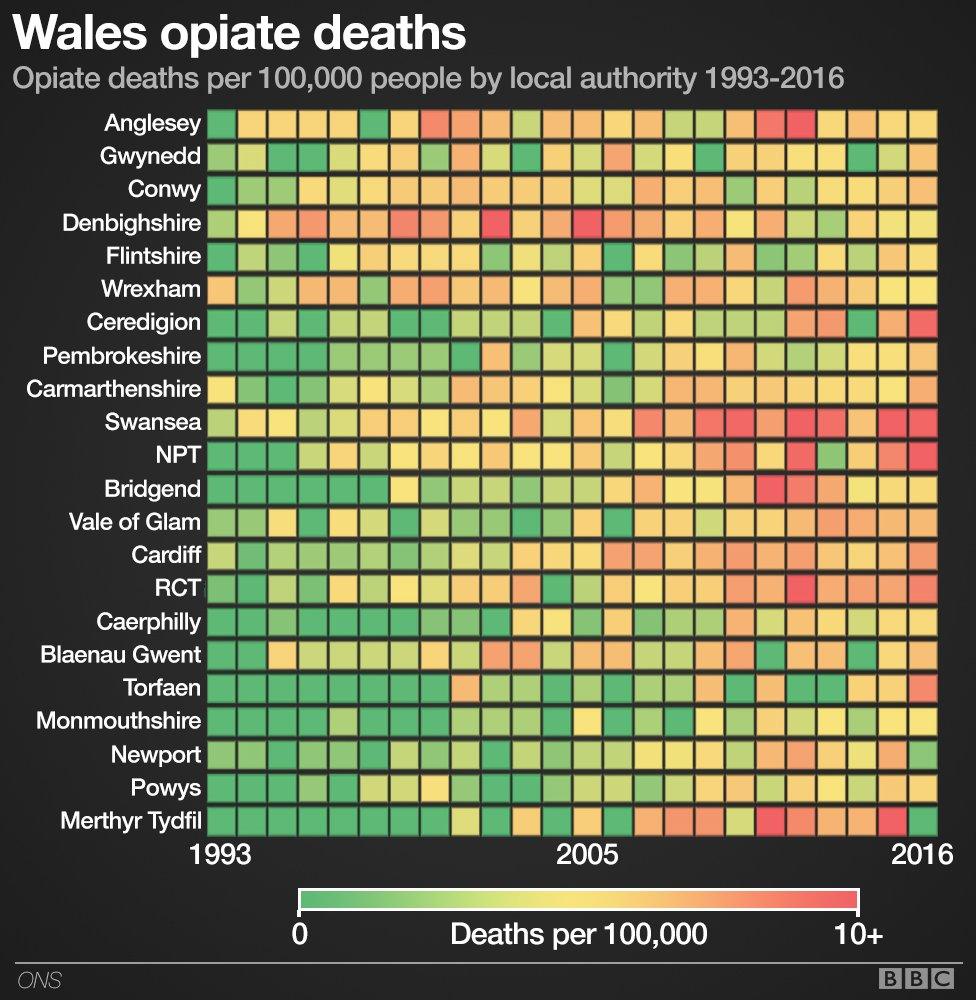
The Welsh Government said the issue was "not straightforward" and it was currently reviewing research and evidence around Europe for the Medically Supervised Injecting Centres (MSICs).
A spokesman said they were working to ensure everything possible was being done to provide support and treatment quickly and to reach those not currently in touch with substance misuse services.
"Alongside a range of other interventions, and given many of those most vulnerable are not in touch with available services, we are continuing our roll out of Naloxone (a drug which temporarily reverses the effects of opiate overdose) across Wales in order to provide it to those who are at high risk of overdose," he added.
"We will be evaluating the ONS statistics for Wales in more detail, taking into account geographics, substances and situational factors and will work closely with harm reduction groups within health board areas to shape further action so that we can return to the situation where drug deaths in Wales were declining."
- Published1 August 2017
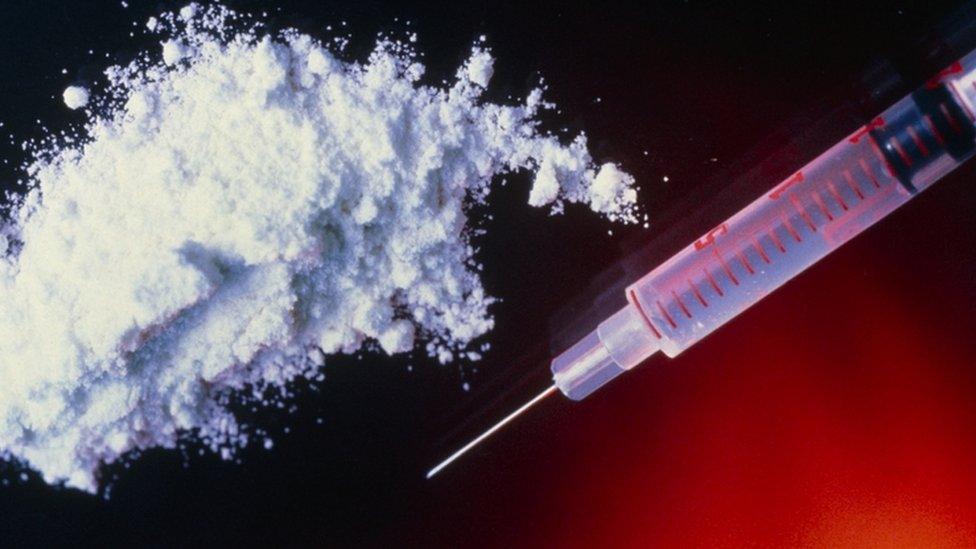
- Published6 August 2017
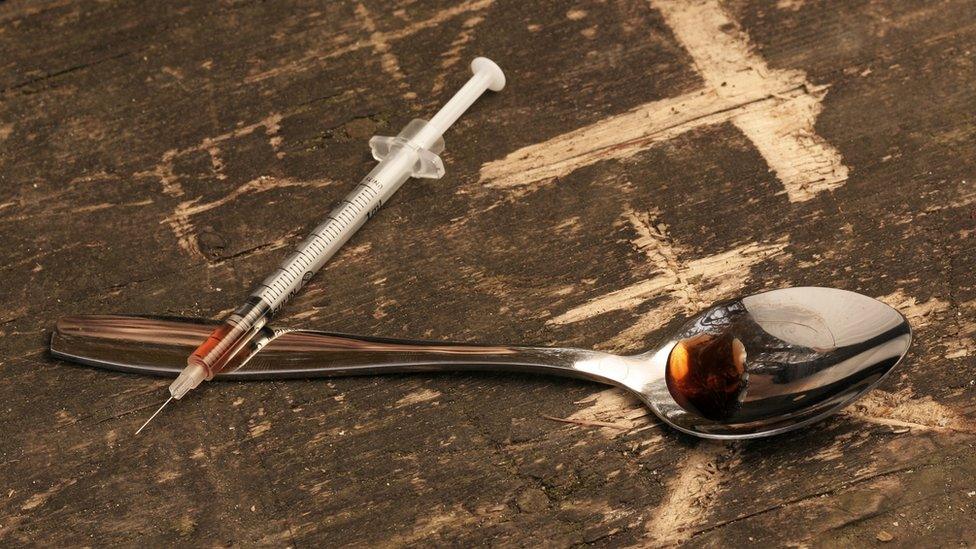
- Published9 January 2017
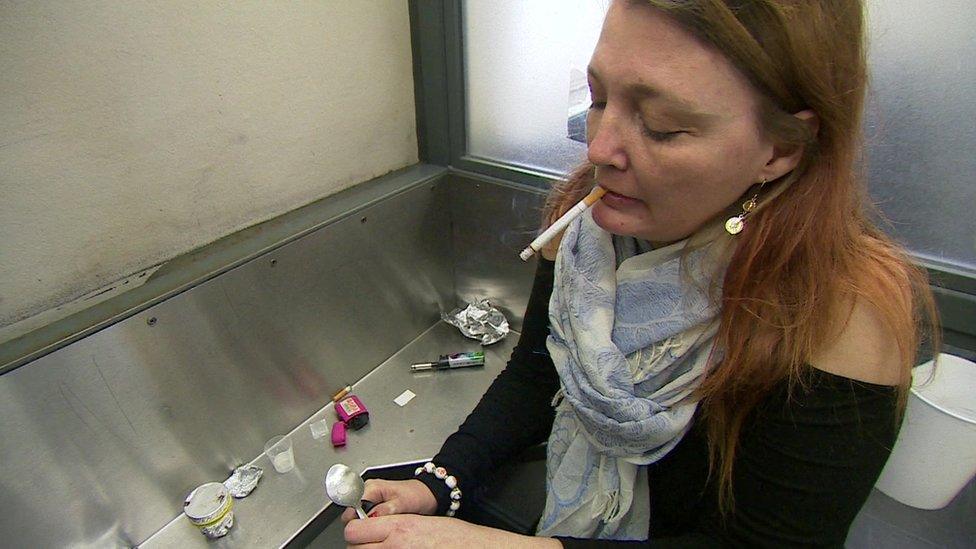
- Published3 January 2017

- Published26 November 2016
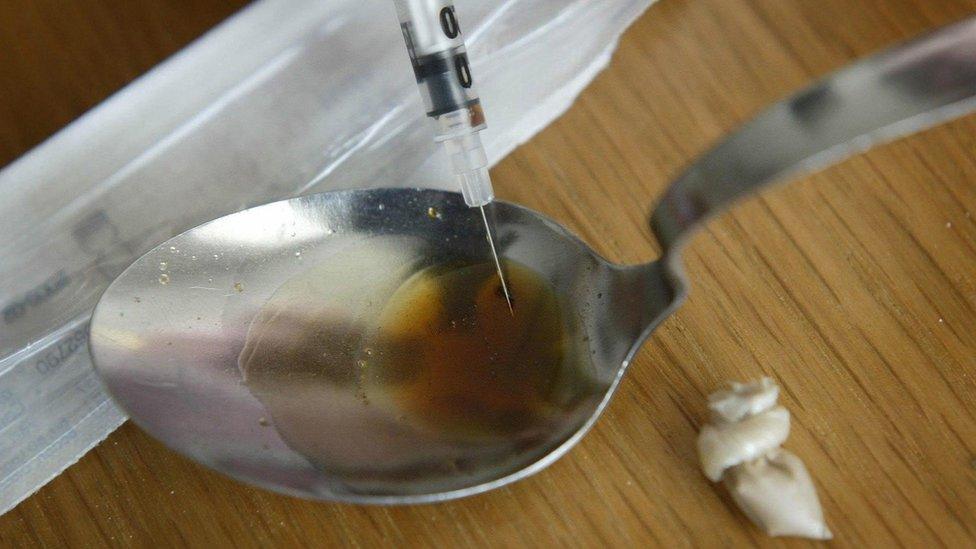
- Published9 September 2016
